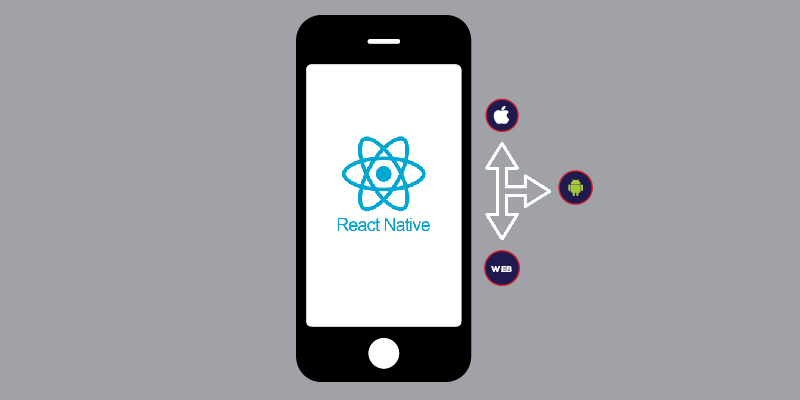Get Upto 60% Discount
Grab 50% Discount
for all custom logos
Please fill the form below & proceed
What Are the Reasons to Choose Native App Development?

August 2 , 2023 Posted by admin
Every business in the world today requires a mobile app to expand and remain relevant. Mobile audiences have experienced exponential growth since 2015. Approximately 60% of all internet activities involve mobile devices. The advantages of native app development will be covered in this post, along with why you should use it as a strategy for mobile app development for businesses.
Although developing mobile apps is a profitable business strategy for organizations, it can be challenging for app developers to create a useful app. Businesses need to think about a number of important considerations before deciding whether to create an app. There are numerous considerations to make, such as;
- Selecting the most effective mobile application and operating system.
- Adding essential features.
- Choosing between a hybrid and native platform.
Although the development of hybrid and native mobile apps has benefits and drawbacks, native apps are typically preferred by enterprises.
Native apps are created with the right technology and programming languages for a certain mobile platform. IOS apps are made with Swift and Objective-C, as opposed to Android apps, which are made with Java or Kotlin. Generally speaking, native apps perform well.
IOS Native App Development

Apps made particularly for the iOS platform and mostly in Objective-C and Swift are referred to as native iOS apps and have several advantages. IOS development is unique because its source code is closed, meaning that only Apple hardware may be used to develop it. A Mac is, therefore, required for an iOS developer to carry out analyzing, coding, and testing.
A code editor, iOS SDKs, and debugging tools are just a few of the capabilities included in Apple’s default IDE, XCode.
Since Swift is more commonly used and easier to understand, Apple developers have also developed Swift playgrounds to assist those entering the profession. They can study, create, and code simple programs in a collaborative setting.
An excellent UI framework is also offered. On all kinds of user devices, SwiftUI makes it easier to design interactive user interfaces. It’s simple to understand, has clean code, and provides developers with a variety of features they might wish to add to make the app appear more appealing.
Android App Creation with Native Code

The most popular languages for creating native Android apps are Kotlin, Java, and C++. Users can download these apps from the Play Store, where they are launched. Additionally, Google offers many services to facilitate Android app development.
Android Studio, which includes Android SDKs, is the official IDE for creating native Android apps. With its rich development tools and frameworks, such as a quick and fully capable emulator that can be used to test the apps, it facilitates and accelerates Android development.
There are other sophisticated services available outside of Android Studio, such as Google’s Firebase, a vast platform that can be used to build both mobile app development and online applications.
Android Jetpack, a compilation of libraries of Android software components that enable the development of complicated apps easier and more efficient, is another tool that supports Android development.
Top Ten Advantages of Developing Native Apps
Improved Speed
Native apps operate more quickly and effectively, making the most of the device’s processing power and reducing reaction times. Additionally, a lot of the components are loaded and do not need to request data from the internet, which speeds up loading.
Easy Hardware Integration for Mobile Devices
Because they were designed for the particular operating system, integration with the corresponding hardware system is easier. These are also supported by the ecosystems of their respective platforms and work well with a variety of screen sizes and software versions.
Wonderful User Experience

With improved UI/UX design, native apps most likely offer the best possible user experience. Push notifications, Offline mode, and seamless flow all work together to provide the user with complete control over how they use the program. It’s possible that hybrid or web apps don’t have this.
Maximum Security
Because they may leverage the operating system’s built-in security measures, native apps are fairly safe. As a result, there is less likelihood of a data breach because it operates through numerous levels of security processes. In order to maintain data integrity, everything can also be coded into the infrastructure of the program.
Greater Efficiency
The development of functioning native apps benefits from focusing on native programming languages and APIs. Through the use of code, memory and storage are better optimized. Developers can incorporate modern hardware capabilities like GPS for increased functionality. In the end, it does offer more navigation and involvement.
Working Remotely
Native apps can operate at any time and any place because they are kept on your device and do not require network connectivity. This benefits greatly because it eliminates the ongoing worry that a connection would negatively impact an app’s functionality.
Responsive
These apps adapt to different screen sizes and are responsive, depending on the user’s device. App orientation, size, and quality can be better controlled with native mobile apps. These maintain the ratio, which also upholds the caliber of the visuals and photos.
Stability
Apple and Google, which provide stability while you utilize their services for app development, are two companies that provide strong support for iOS and Android. They offer additional tools, platforms, and plugins compatible with your app or IDE and improved security, credibility, and security.
Fully Utilize the Feature of the Device

Native apps completely utilize the hardware and software of the device. The app can use cameras, microphones, GPS, and gesture-based controls, making it extremely sophisticated and giving it a USP. You won’t find this level of integration simplicity anywhere else.
Have Certain Markets in Mind
Each platform has a specific market, giving your brand the upper hand. For instance, if someone wants to download an app, they might explore the Playstore or the Appstore, where you can create your own.
When your program is well-used and has a lot of downloads, these markets can also aid in revenue generation.
How Do You Choose To Create A Native App?

When your company is prepared to make significant financial investments in app development and has the goal of creating a smooth-running, scalable software that combines device hardware features, native app development should be considered. Native development’s exceptional performance and variety of features may give your app the attention it deserves, especially if you’re just getting started.
Cross-Platform, Hybrid, And Native App Development: What’s The Difference?
While selecting the ideal one for your product, a number of variables must be taken into account;
Development of Native Apps
As previously stated, the Native apps utilize a certain technology that is exclusive to the Android or iOS platforms. As a result, different approaches are required for Android and iOS software development. The languages used to create Android mobile apps are Kotlin or Java. iOS applications can be made in Swift or Objective C.
The platforms for Android and iOS app development are crucial since they offer a wide range of app options. The program will be of a high caliber because it is made to run on both systems. Native mobile developers make use of the tools provided by the platform and program them to function well.
Mobile Hybrid Development
In hybrid mobile app development, native and online app features are combined. Hybrid mobile apps are made by mobile developers utilizing well-known languages like JavaScript, HTML, and CSS. It is necessary to develop backend software based on the native shell to construct hybrid apps. The Apple App Store or Google Play can then get these codes. A hybrid app quickly creates a final product that can be targeted across platforms by combining elements from both mobile and web apps.
Cross-Platform App Development
The same codebase underlies hybrid and cross-platform development. Yes, mobile developers employ the same native components to build apps but differ in how well-rounded user experiences are delivered through various UIs. Instead of producing separate versions of programs for each platform, cross-platform mobile app development involves designing a single application that can run on a variety of operating systems. The main motivation behind cross-platform app development is to create software that functions well in a variety of different digital environments in order to promote it to a larger clientele.
Conclusion
The best way to create a high-performance mobile app that will run on a certain platform is through native development. Although it could be more expensive than creating a hybrid or cross-platform application, it might be the best option for you in the long run. If you are looking for mobile app design, website design, and logo design services, then get in touch with LogoMagicians.
Also Read: How to choose logo design wisely things to consider before hiring a logo design company and logo design services

Leave a Reply